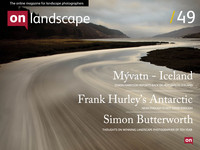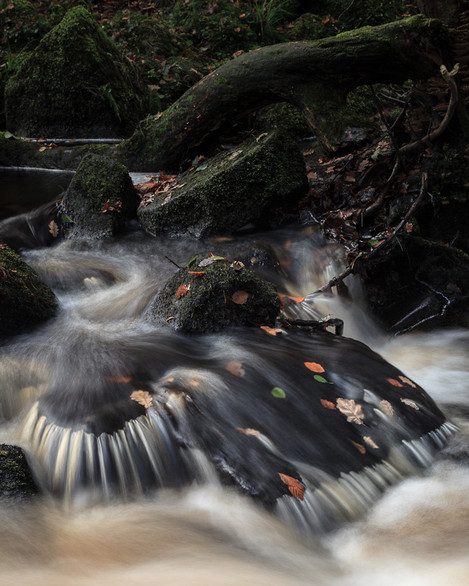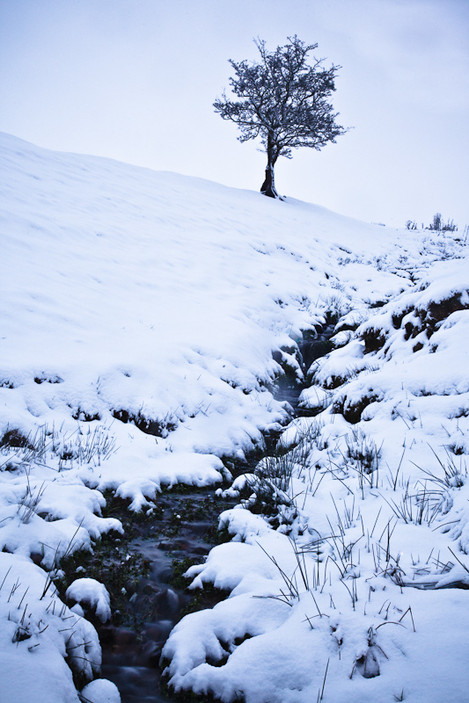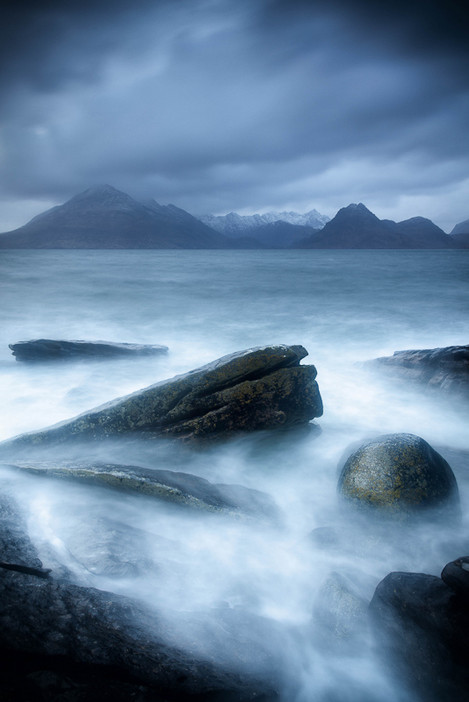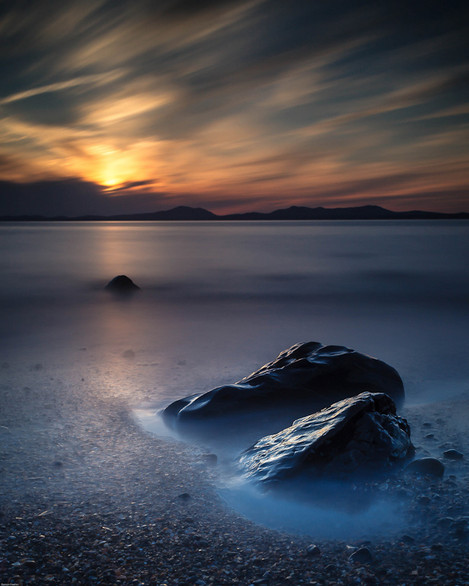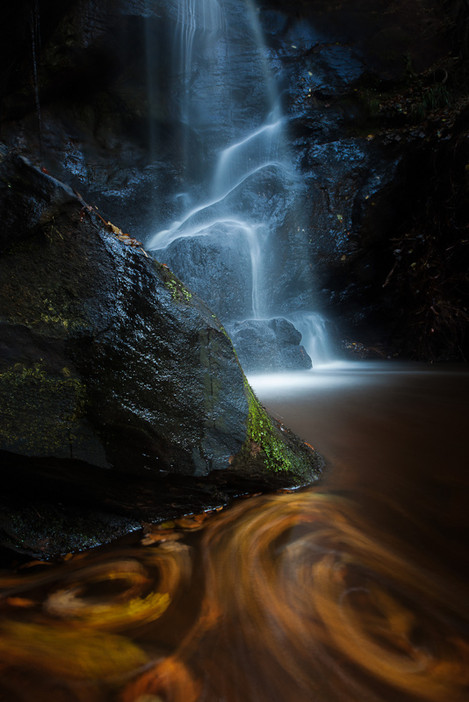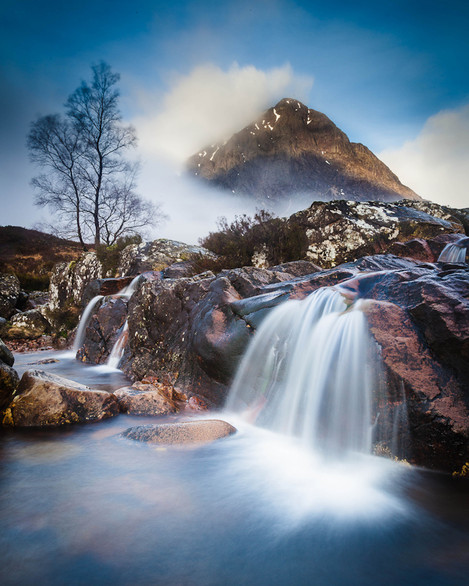Featured Photographer

Tim Parkin
Amateur Photographer who plays with big cameras and film when in between digital photographs.

Duncan Fawkes
Peak District based photographer. Love it. Moonlight as a software development manager to earn actual money.
Duncan Fawkes "Murk Illuminated" caught my attention on Flickr recently and I was pleased to find a very informative and enjoyable blog and a stream of very satisfying pictures and Duncan was happy to answer a few questions for On Landscape...
Can you tell me a little about your education, childhood passions, early exposure to photography and vocation?
I grew up in the Scottish borders, somewhere I now recognise as a lovely part of the world. Like many youngsters I didn't at the time!
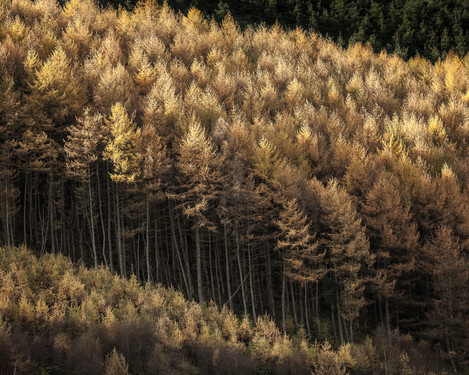 My biggest passion as a child was computers. My dad bought a Commodore 64 as a family Christmas present and I remember us sitting together typing in long BASIC program listings to get a ball to bounce around the screen. Really quite bizarre when you think about it! But this was the starting point for me to write my own computer programs that led to a career in software development.
My biggest passion as a child was computers. My dad bought a Commodore 64 as a family Christmas present and I remember us sitting together typing in long BASIC program listings to get a ball to bounce around the screen. Really quite bizarre when you think about it! But this was the starting point for me to write my own computer programs that led to a career in software development.
I was quite academic at school and tended to do well in maths, physics and computer science. By contrast I was pretty rubbish at art, music and languages. When it came to choosing subjects I naturally chose my better subjects and as the course timetable put science and art in conflict, there was little hope of me developing an artistic side at school. I think the curriculum conflict supported the myth that you were either a scientist or an artist, and so I took a "scientific" path and my creative side remained dormant for many years. I often wonder if the academic establishment is letting us all down by reinforcing that.
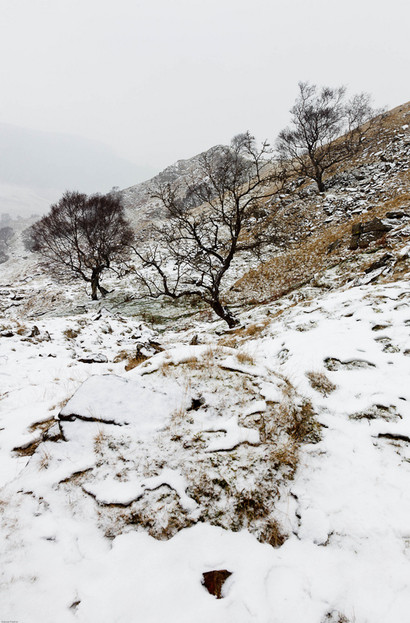 Both my father and my grandfather, in particular, were keen photographers when I was younger, so it's strange that I didn't pick up the bug from them. I like to think that their influence has eventually caught up with me. Perhaps when looking for an outlet photography felt natural due to earlier exposure. I'm not sure. I do recall that my memories were of being slowed down on family trips while they set-up for another shot, or being subjected to evening long slideshows of the plants and flowers they preferred to shoot (my grandpa was a professional gardener). All these years later I am now the instigator rather than the victim, 'what goes around comes around' and all that!
Both my father and my grandfather, in particular, were keen photographers when I was younger, so it's strange that I didn't pick up the bug from them. I like to think that their influence has eventually caught up with me. Perhaps when looking for an outlet photography felt natural due to earlier exposure. I'm not sure. I do recall that my memories were of being slowed down on family trips while they set-up for another shot, or being subjected to evening long slideshows of the plants and flowers they preferred to shoot (my grandpa was a professional gardener). All these years later I am now the instigator rather than the victim, 'what goes around comes around' and all that!
And so, unlike most photographers that feature here, I can hold no claim to a long term love of photography either as an admirer or creator.
It was as I approached my 30s that I felt some things needed to change in my life. Not in that "I must do photography, NOW!" kind of way but slowly I started opening my eyes to the world, spent more time travelling, searching for something more meaningful in life than a groundhog day of desk work, pub, computer games, TV. I'm not sure if this was some sort of early mid-life crisis, but I like to think of it as an "awakening".
I was very lucky that my parents bought me a trip to Iceland for my 30th. I decided I to get myself a DSLR to make the most of it and do it justice. If only I knew then that it takes more than an expensive camera to do that - Iceland is on my "must return" list! But from that point my love for photography has grown day by day, year on year. Given my relatively recent awakening I very much feel like I'm at the start of my journey, and in many ways paying back a creative debt that's been built up over 30 years.
As a sidenote, it does seem that there are a lot of us from the IT crowd that become photographers. Whilst I've long said that programming is as much art as science, it doesn't have the same sense of creative satisfaction given that most of the public see software as utilitarian rather than something to admire. I think many of us, able to get our heads around the technical aspects, find it an exciting and accessible creative outlet.
what are you most proud of in your photography?
I'm not sure that I'm "proud" of my photography as such. Reflecting on the last question, I'm certainly proud that I've found a creative calling and one I feel so enthusiastic and passionate about. It seems relatively rare for people to use their creative side so I'm proud that I have that and am able, in my own way, to create something of myself to share with the world. I think that's pretty special.
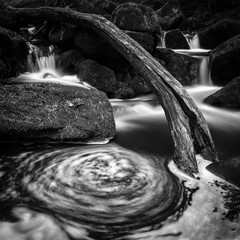 From an ego perspective, I guess I get pride from the positive comments I've received. I recall friends and family being genuinely shocked at the quality of my work when I launched my website a few months ago and that was good. I feel a lot happier that my party introduction has changed from "he works in IT doing some database stuff" to "he takes amazing photos, you should check out his website!".
From an ego perspective, I guess I get pride from the positive comments I've received. I recall friends and family being genuinely shocked at the quality of my work when I launched my website a few months ago and that was good. I feel a lot happier that my party introduction has changed from "he works in IT doing some database stuff" to "he takes amazing photos, you should check out his website!".
More tangibly, it pleases me that I'm largely self taught and tread my own path. Whilst I've spent time reading books, tutorials, etc I've mostly found my own way through trial, error, and practice. When I'm in the field I'm not trying to remember back to something I've read or someone else's image, I'm reacting to what I see and generally have a belief that I have the technical ability to pull it off (or at least try it!).
Anything else that you think might make me come up with some pertinent questions? (I haven't had chance yet but come back for a couple more questions later.. - Ed )
As per my earlier answer I spent a lot of time in my younger days playing on computers rather than enjoying the outdoors. My most visceral early memories of the landscape were from spending a couple of weeks every summer with my grandparents on the Isle of Skye. Again it's an example of not fully appreciating the spectacular landscape (sadly I don't think I'm unique). But I do have very vivid memories of running on the hill behind their croft house, exploring abandoned settlements, cockling on the shores of Loch Dunvegan or fishing off Neist Point or enclosed by the sea cliffs at Waterstein. That time in Skye, I realise all these years later, forged a link between myself and that sometimes bleak but always magical landscape that I still draw on when I'm making photographs.
In most photographers lives there are 'epiphanic’ moments where things become clear, or new directions are formed. What were your two main moments and how did they change your photography?
My most epiphanic moment was when I spent a week on Skye on a Bruce Percy workshop back in March. Ignore the fact it was Skye, it was Bruce Percy, the learning and the camaraderie that made it a great week. It was the validation of both my technical skill and my visual senses coupled with the huge pleasure I got out of going out into the landscape in pretty awful weather that really made me feel "this is it". It's difficult to explain, but for that week I felt I was leading an alternate life as a landscape photographer which had only ever seemed like a crazy idea before. Returning to work and normality of life was a massive comedown after that experience, but the reassurance and confidence the experience instilled in me has been greatly energising since.
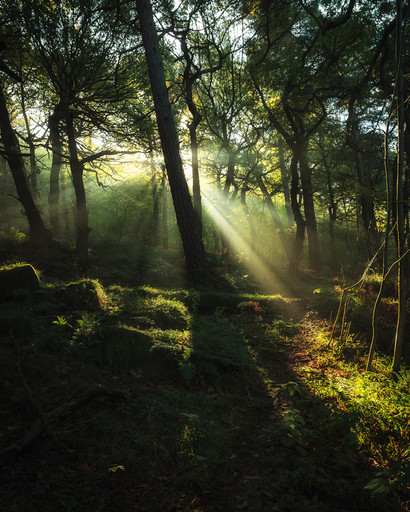 It seems strange to on one hand say that I'm self taught but my biggest epiphany was on a workshop! I think because of the work I had put in to that point, to then have it validated, to know that I'd been progressing in mostly the right direction after all, it was hugely encouraging.
It seems strange to on one hand say that I'm self taught but my biggest epiphany was on a workshop! I think because of the work I had put in to that point, to then have it validated, to know that I'd been progressing in mostly the right direction after all, it was hugely encouraging.
Another moment was when I was on a family camping trip to Shell Island (Mochras in Welsh) at the start of June. This was the first time that I could say with certainty that I had created a shot from nothing but my own vision. Those that have been to Shell Island will know that for the most part the beach is a mass of black, seaweed boulders that aren't much to get excited about. I found an arrangement of rocks that I really liked on the beach, but they were quite high up the beach and I noted that high tide didn't quite reach them. Using tide tables I worked out that the tide was going to be particularly high and would likely reach them on our last night, and it so happened that high tide corresponded with sunset that day. The fact that it turned out to be the best sunset of the week just made my day!
At the time I shot Prometheus I felt this was a new unique style that was the pinnacle of my year's endeavours. Looking back on it now I still like it but it was more of a one-off, I haven't shot similar since due to living far from the sea, and I also feel that my work has progressed beyond this point. Nonetheless it reassured me that I could find and plan something myself - in many ways I think that is *the* real challenge for a landscape photographer.
Tell me about why you love landscape photography? A little background on what your first passions were, what you studied and what job you ended up doing
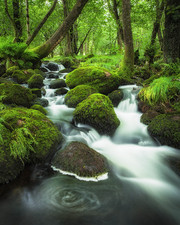 To be honest it's difficult to say. It's a good, thought provoking question as it's not something I dwell on, I just know I do! The obvious answer is that I just find the landscape itself such a wonderful environment. It's so massive, so varied and so filled with little treasures to stumble upon. It really is a massive and awe-inspiring playground. The sense of wonder, isolation and adventure of being in the landscape feels really earthy and primal, a core part of who we are. And so I guess landscape photography is an attempt to translate that sense of wonder into something tangible, in some way saying "this is how I feel about this place". That's why I think conveying an emotion in an image is more important than capturing "what you see".
To be honest it's difficult to say. It's a good, thought provoking question as it's not something I dwell on, I just know I do! The obvious answer is that I just find the landscape itself such a wonderful environment. It's so massive, so varied and so filled with little treasures to stumble upon. It really is a massive and awe-inspiring playground. The sense of wonder, isolation and adventure of being in the landscape feels really earthy and primal, a core part of who we are. And so I guess landscape photography is an attempt to translate that sense of wonder into something tangible, in some way saying "this is how I feel about this place". That's why I think conveying an emotion in an image is more important than capturing "what you see".
It continues to sadden me that many people's connection with the landscape is only through documentaries and pictures in books and magazines. Being swallowed by the land for a while and letting everything else fade to irrelevance has to be one of the greatest gifts we have and so few take advantage.
Could you tell us a little about the cameras and lenses you typically take on a trip and how they affect your photography.
I've had a Canon 5D Mark II for nearly 4 years now and I'm still very happy with it. Before this year I had a couple of primes for photographing my daughter, but I used zooms (17-40, 24-105, 70-200) for my landscape work.
During the workshop Bruce suggested I consider using primes for more of my landscape work. I started taping down my zooms and taking my primes with me. I quickly understood what he meant - I developed a much better appreciation for the effects of different focal lengths, and learned to adjust my position to perfect a composition rather than "stand and zoom". This has really helped with my visualisation process whereby I can see a scene and with good certainty decide what lens and position I need. It prevents laziness and makes you think. Often I think the joy of photography is solving a visual puzzle, using tools, knowledge and vision to translate an often complex scene into a beautiful image and using primes seems to help with that problem solving.
I now predominantly use primes - Zeiss 21mm, Canon 35mm f/1.4L, and Canon 135mm f/2L. Normally I shoot wide and close with the 21mm or 35mm. The 135mm comes out much less occasionally. I still take my 24-105 with me for 'emergencies' (normally awkward spots around waterfalls) though still have it gaffa taped to stop mindless twists of the zoom barrel. I find I'm often using this at 50mm as I search for increasingly intimate details in the landscape, so I'm considering switching out the zoom for a Zeiss 50mm.
What sort of post processing do you undertake on your pictures? Give me an idea of your workflow..
I use Lightroom for all of my post-processing, I think it's a great bit of kit. Once I've imported and backed up my images, I'll quickly review the images, normally recalling the shoot and knowing what I'm looking for. I'll weed out and delete the really duff images, and keep an eye out for the gems that I'll immediately get to work on. Once I've worked up the images I'm most excited about I'll go back to spend more time with other images from the shoot, most likely several days or weeks later. When I'm initially assessing images, I'll make heavy handed quick edits, normally with the white balance and exposure just to see if I've got something worth working with. Normally I "expose to the right" and so the images will be 1 or 2 stops "over exposed" so I'll bring them back down for review.
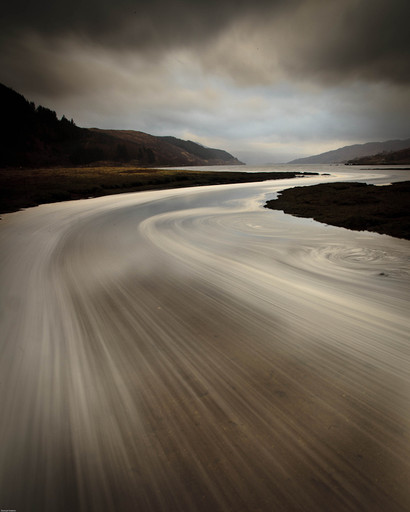 Once I pick a gem, I'll hit reset and get to work. My workflow isn't regimented in anyway. Whilst I'll normally follow a similar path through the options, different images will make me try things in a different order. Normally I would set the WB first (I always shoot in RAW) as I think this has the largest impact on the "mood" of the image. I'm less concerned about getting a neutral white balance than I am about creating a feeling. Emotively my work tends to the cooler rather than the warmer side of neutral.
Once I pick a gem, I'll hit reset and get to work. My workflow isn't regimented in anyway. Whilst I'll normally follow a similar path through the options, different images will make me try things in a different order. Normally I would set the WB first (I always shoot in RAW) as I think this has the largest impact on the "mood" of the image. I'm less concerned about getting a neutral white balance than I am about creating a feeling. Emotively my work tends to the cooler rather than the warmer side of neutral.
I will probably try an initial crop at this point. I've become a big fan of 4x5 and tend to look for compositions that will work in that format in the field.
My next port of call will often be the Gradient tool. Although I use ND grads in the field, this is with the intention of holding the sky back enough that I can bring the ground's exposure up to get as even an exposure as possible rather than getting the sky's exposure "right". I'll then use the Gradient tool to get the balance between sky and ground right.
I'll then adjust the Tone sliders to get an appropriate exposure. I'll normally have a quick play with Clarity and Vibrance to see the impact that they have on the image, but generally leave these until a bit later. I'll normally leave the HSL sliders until later in the workflow as things tend to settle down, using them for finer adjustments. I'll have a play with the lens corrections and camera profiles to see how they affect things, different images react differently so they can be a bit take-it-or-leave-it.
Really it's just about letting the image grow organically, going through making changes, looking at the effect, and then revisiting them, gradually making finer and finer adjustments. I really couldn't look at an image and predict where I'd want to put the sliders in one go. Their effects are linked in subtle and not so subtle ways, and every image is different, so I treat the sliders a bit like a chef checking the seasoning while he cooks rather than sticking in a teaspoon of salt at the start.
For finishing touches, I'll often do a bit of dodging and burning, and some local adjustment of Clarity and Vibrance to push and pull the eye as appropriate. I'm a big fan of Clarity, but increasingly I find it is better as a local rather than global adjustment to pull the eye to key parts of the image. It acts a bit like a larger, more obvious form of sharpening so I use it in a similar way to selective sharpening. I'm a big fan of vignettes as they keep the eye within the frame. I try (and sometimes fail!) not to make this massively obvious, just a hint of edge darkening to hold the eye.
I've also become a fan of Nik Software's Color Efex Pro 4. Like most things bad use of the filters can lead to really garish results, but I think if you tone them down and use them carefully they can add a little magic to the image. My favourite filters are Polarization, Pro Contrast, Darken/Lighten Center, Detail Extractor and Sunlight.
I don't use post-processing to change the core reality of an image, but I think it's an important tool to create the right feeling in the image.
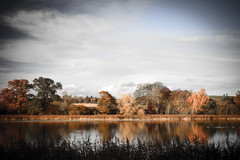 Do you get many of your pictures printed and, if at all, where/how do you get them printed?
Do you get many of your pictures printed and, if at all, where/how do you get them printed?
Being a child of the digital age I'm guilty of having most of my images only in electronic form. I do like printing them, I'm just very selective of what I print (and there's probably an argument that you should only set those that you would print loose into the world!). I print at home on a Canon Pixma Pro 9500 on a selection of 3rd party papers. I feel that printing is an art unto itself with a degree of black magic involved. I'm always much more impressed with my images when I print them, they are so much more enjoyable in physical form. But I wonder how much better they might look in the hands of a 'master printer'.
I've started to print more of my images and hope to do so more to improve my printing skills. It does feel like a sin to consign our images to digital graveyards on Flickr and hard drives, especially when you consider the lengths we often go to make them.
Tell me about the photographers that inspire you most. What books stimulated your interest in photography and who drove you forward, directly or indirectly, as you developed?
It won't be a surprise that I find Bruce Percy hugely inspiring. I really love the simplicity and emotive beauty of his images. Although he often travels to exotic locations, these places seem more like backdrops to the interesting subjects - rocks, ice sculptures, patterns - and light that he finds. The story seems to be more about what he finds interesting and emotive about a place rather than a story of the place itself. This is well aligned with my outlook. Beyond his images, I really admire the way that Bruce applies himself to his art - he's really intense, focused and thoughtful and this comes across in his blog posts, eBooks and his beautiful photo books. It really feels like a labour of love for him and he pours himself into it. There's much of that that I admire. Also, he's an ex-IT guy so there are at least some passing similarities between his journey and mine (on reflection the IT thing might be where the similarities start and end!).
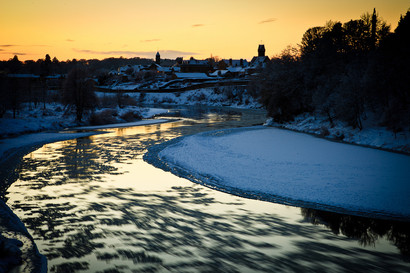 Perhaps coincidentally - given he wrote the foreword to Bruce's new book - I'm also a big fan of Ragnar Axelsson and his book Last Days of the Arctic was the first book I bought last year purely for the enjoyment of the images. There's a stark and wild quality to his images that I really love. I was blown away by his BBC documentary Last Days of the Arctic that was on last year and I have it marked "keep" on Sky+ when I need a hit of inspiration.
Perhaps coincidentally - given he wrote the foreword to Bruce's new book - I'm also a big fan of Ragnar Axelsson and his book Last Days of the Arctic was the first book I bought last year purely for the enjoyment of the images. There's a stark and wild quality to his images that I really love. I was blown away by his BBC documentary Last Days of the Arctic that was on last year and I have it marked "keep" on Sky+ when I need a hit of inspiration.
Another key influencer that I'd like to mention is David DuChemin. Although he doesn't title himself as a landscape photographer, I do enjoy his images and moreso his writing in his books, eBooks and blog. He was one of the first voices to lead me out of the beginner's "gear trap" and talk about the importance of finding your voice, and being true to yourself. His style may be too American for some (even though he's actually Canadian!) I really like his delivery and find him quite motivating, and he's certainly got a "can do" approach - he just gets on with doing what he wants in life, often making it look deceptively easy. He's certainly been an inspiration to me.
Going back to the start of my journey I was inspired by Joe's ubiquitous First Light and Charlie Waite's The Making of Landscape Photographs. I still like to revisit these from time to time.
But really it's only the last year that I feel my journey has got serious and I've started paying more attention to other artists and to my own approach. So I really see myself as in the early stages of development, with many great photographers to still discover and enjoy.
Finally without wanting to sound too wet or crazy, I've found Twitter to be a massive source of inspiration in the last year. This comes in many forms. Twitter sort of feels like a creative circle sharing great ideas and work, providing support, challenge, and encouragement in a way that I think is really beneficial to "self taught" and perhaps otherwise quite isolated photographers. I've been on Flickr for some years, but finding like minded and interesting people on Twitter has really helped me to "join the dots" of the photography community much better, and it's interesting that I'm now Flickr contacts with a lot of people having found them on Twitter! In short, I've found Twitter in combination with a good group of people to follow to be a real bonus in inspiring and supporting my work.
Tell me what your favourite two or three photographs are and a little bit about them.
Elgol Twilight: Yes, Elgol on the Isle of Skye is a bit of a cliche, but it's with good reason it's so well shot. What I find amazing about it is that the conditions from the sea, to the sky, to the mood of the Cuillins can be completely different from one image to the next (can be - not all are! :)). Some of you may recognise the "bowling ball" on the right from the image on the front of Joe's First Light. For this image the light was fading really fast, heavy showers kept coming over (that's Elgol!) and the sea was really tumultuous. I've perhaps made technically better images to this one since, but I love the feeling of this one and the memories of being there.
Prometheus: I should mention this shot as I talked about it above. Again I've not really followed up on this style and I've probably changed since making it, but at the time it felt like a breakthrough image for me. I really love the alien-like foreground rocks sitting in the pool of mist, and the tones extending to the horizon. Still bugs me that I didn't put that triangular rock in the middle of the sun's reflection though!
Murk Illuminated: I should include a waterfall shot as they are very much "my thing", I love their ever changing character. This was shot recently at Roughting Linn in Northumberland, just over the border from where my parents live. Amazingly there's a road that crosses the stream just a few feet back from the top of the image but this waterfall seems little known - I grew up within miles of it and didn't know anything about it (too many games of Elite perhaps!). I took the wrong route in and had a bit of a scramble down a rather slippery cliff to get here. In the pool at the bottom are many fallen trees and branches, so there are relatively few compositions to work with, but as soon as I saw these leaves swirling in the foreground (something of a motif in my waterfall shots) and the lovely winding fall, I was sold.
If you were told you couldn’t do anything photography related for a week, what would you end up doing (i.e. Do you have a hobby other than photography..)
I'd hope to get out into the landscape and enjoy it for what it is without a camera in my hand. Otherwise I'd most likely spend more time with my wife and 2 year old daughter who is just a big bundle of fun. I'm not a big reader but I've got a big pile of books to read, so I'd probably work my way through those. Undoubtedly I'd find some time for some light relief playing a computer game. And if the football season was on I'd be down the local watching Man Utd (though to be fair I do that even when photography is on the agenda!).
I used to have loads of varied hobbies that I'd be juggling to different degrees. I can be quite "faddy". It's this faddiness that has really cemented the importance of photography in my life, it's the longest I've ever voluntarily stuck at anything! Yet I still seem to get increasing levels of enjoyment and fulfillment out of it. Without wanting to sound too cliche, more than being a hobby, photography just seems to be a part of me now.
What sorts of things do you think might challenge you in the future or do you have any photographs or styles that you want to investigate? Where do you see your photography going in terms of subject and style?
At this stage, I'm not sure, I'm still exploring myself and the land really. Though I normally try to keep my images as simple I'd like to try for more minimalism, though this is tricky in the rocky clutter of the Peak District.
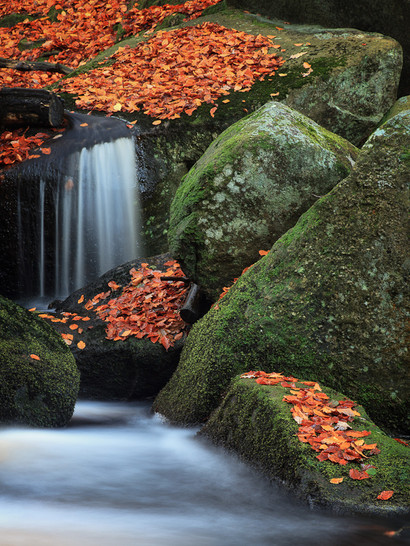 As an antidote for my desire to go off to big obvious landscapes, I've started a project to try to to spend more time in my not so obviously beautiful valley and I'm hoping that this will take me on a path to deeper exploration of the area and myself, and hopefully I can make use of that approach in other parts of the Peak District and beyond. I would say it's my goal to show a different side to the Peak District, one involving more details, bleakness and wilderness. My impression of this place where I live is one of a lot of rain, a lot of cloud, and I don't think there's much imagery (Al Brydon being one such example) that shows this darker, meaner face of the Peak.
As an antidote for my desire to go off to big obvious landscapes, I've started a project to try to to spend more time in my not so obviously beautiful valley and I'm hoping that this will take me on a path to deeper exploration of the area and myself, and hopefully I can make use of that approach in other parts of the Peak District and beyond. I would say it's my goal to show a different side to the Peak District, one involving more details, bleakness and wilderness. My impression of this place where I live is one of a lot of rain, a lot of cloud, and I don't think there's much imagery (Al Brydon being one such example) that shows this darker, meaner face of the Peak.
Within a couple of years, my wife and I are hoping to move to her homeland of Australia. I expect this to present a completely different photographic challenge, one that I must be honest I'm a little apprehensive about! It will be interesting to see how my style changes, especially when I return to the UK for visits.
Who do you think we should feature as our next photographer?
Oooh, I'm not sure! Not sure who you've had on before, but I've really been enjoying the work of Ian Bramham, Al Brydon, Mike Green, Doug Chinnery, David Baker, and I've just come across Russ Barnes. What about Bruce Percy? :D
To be honest naming names is very difficult, as I said above there are so many photographers whose work I follow at the moment that I really enjoy!

